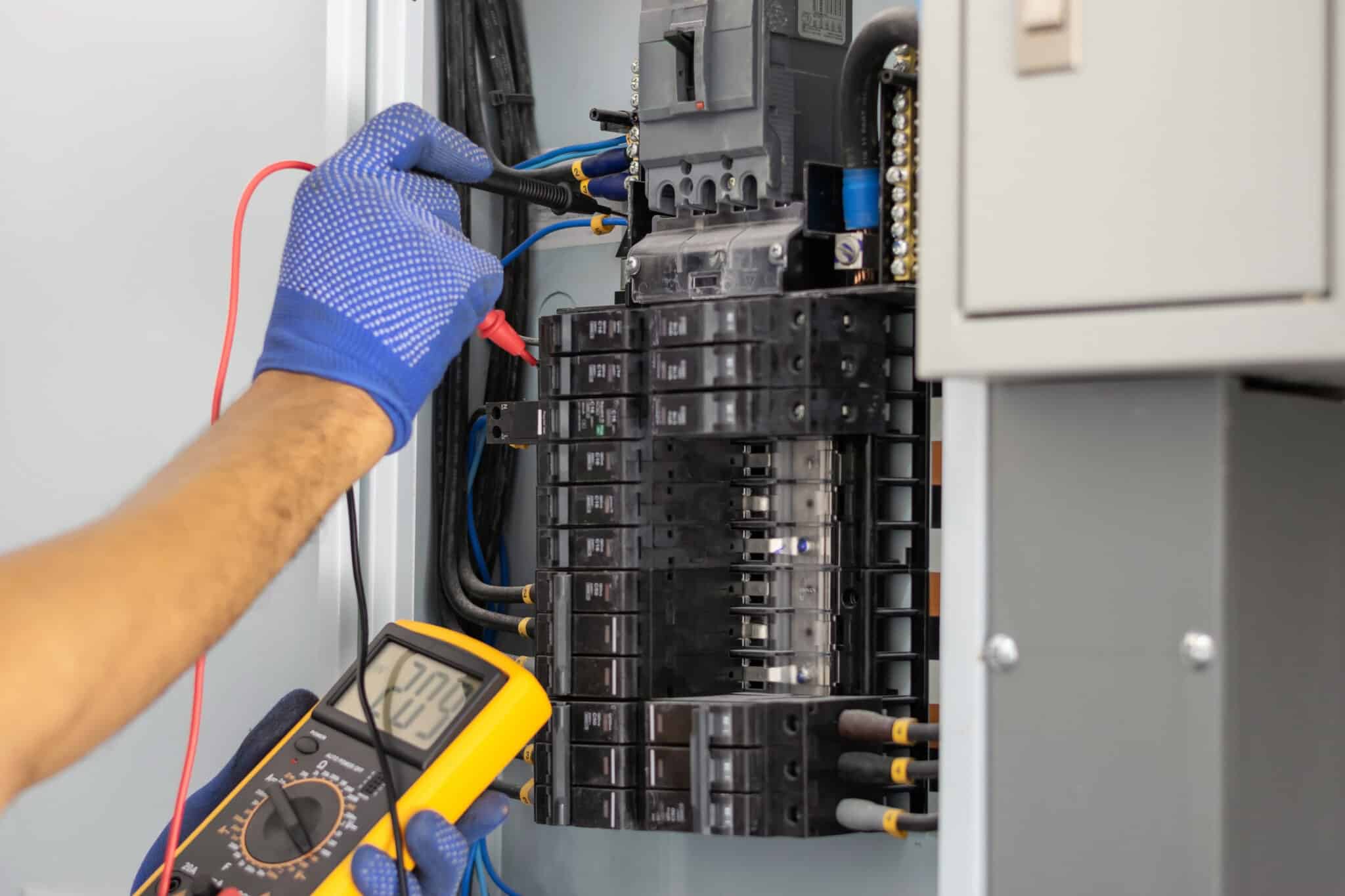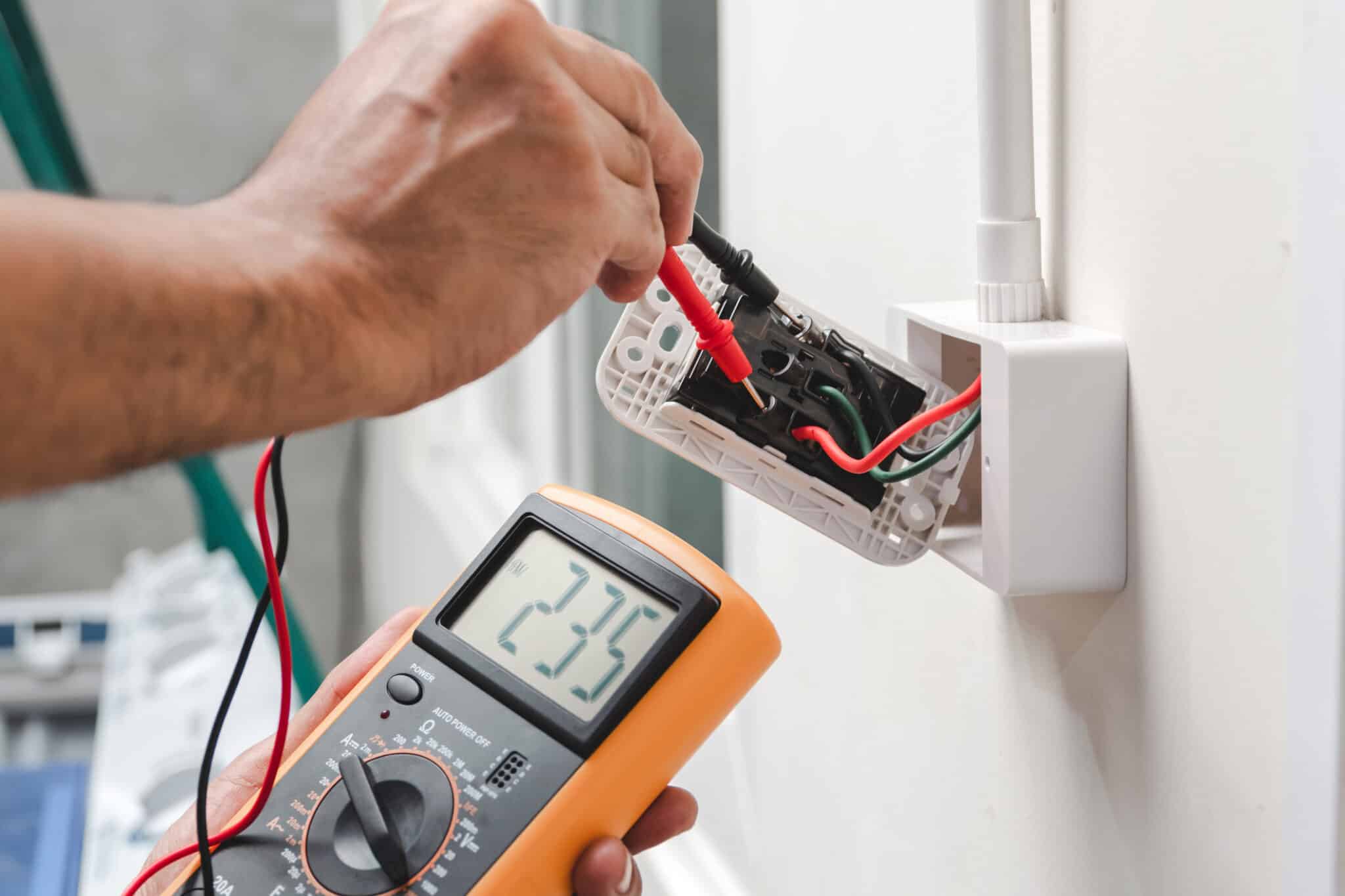Ever wondered if your home’s electrical system is truly safe? Electrical inspections are crucial in making sure your home is secure and efficient.
Whether you’re in Mt. Pleasant or Summerville, regular inspections can help prevent dangerous issues before they start. In this guide, we’ll explore why these inspections matter and what to expect during the process.
What Are Electrical Inspections?
An electrical inspection involves a thorough check of your home’s electrical components by a licensed electrician. They ensure that everything from your wiring to your outlets and electrical panels are in good working condition.
During the inspection, the electrician will look for any potential issues that could pose a safety hazard or affect the efficiency of your electrical system.
Electrical inspections are essential, especially in places like Mt. Pleasant and Summerville, where homes may have unique electrical needs due to weather and local building codes.
Why Regular Electrical Inspections Are Important
Preventing Electrical Fires
Did you know that faulty electrical systems are one of the leading causes of house fires? Regular electrical inspections can identify and fix potential fire hazards before they become a serious problem.
By catching issues like frayed wiring or overloaded circuits early, you can prevent a disaster. An electrical inspection provides peace of mind, knowing your home is safe. Protect your family and property by staying proactive with regular electrical inspections.
Avoiding Electrical Shocks
Electrical shocks can be dangerous and even deadly. Regular electrical inspections help ensure that all electrical connections are secure and properly grounded, reducing the risk of shocks.
By identifying and repairing faulty wiring, you can avoid painful and hazardous shocks. This is especially important in homes with children or elderly residents. Regular electrical inspections keep everyone in your home safe from the dangers of electrical shocks.
Ensuring System Efficiency
An efficient electrical system not only saves you money on your energy bills but also reduces wear and tear on your appliances.
Regular electrical inspections can pinpoint issues that might be causing inefficiencies, helping you keep your home running smoothly. Identifying problems like loose connections or outdated components during an electrical inspection can make your system more effective.
This ensures your home is energy-efficient and reduces unexpected breakdowns. Save money and energy with regular electrical inspections.
Key Components Checked During an Electrical Inspection
Electrical Panels and Breakers
The electrical panel and breakers are the heart of your home’s electrical system. Electrical inspections involve checking for signs of wear, proper labeling, and any outdated or faulty breakers.
Ensuring the panel is in good condition prevents overloads and potential fires. Inspectors verify that all circuits are correctly rated and functioning, which is essential for overall electrical safety.
They also look for any signs of corrosion, rust, or other damage that might compromise the panel’s integrity. In some cases, outdated panels may need to be replaced to handle the electrical load of modern appliances and devices, further ensuring your home’s safety.
Wiring and Connections
Electrical inspections include examining the wiring throughout your home, looking for signs of damage or wear. Faulty wiring can lead to power outages or, worse, electrical fires. Inspectors check that all connections are secure and properly insulated, ensuring that your home’s wiring is safe and up to code.
The inspector will assess both visible wiring and those hidden behind walls and ceilings, using specialized tools to detect issues not immediately apparent.
They will also examine the junction boxes to ensure that all wire splices are properly contained and protected, preventing potential hazards and ensuring that the wiring meets current safety standards.
Outlets and Switches
Outlets and switches are inspected for proper installation and functionality during electrical inspections. Inspectors look for any signs of overheating or wear, which could indicate deeper electrical issues.
They also test for proper grounding and ensure that outlets are not overloaded, keeping these everyday components safe and functional. During the inspection, the electrician will test each outlet and switch for proper operation and safety.
They will also check for the presence of Ground Fault Circuit Interrupters (GFCIs) in areas where they are required, such as kitchens, bathrooms, and outdoor spaces, crucial for preventing electrical shocks and maintaining household safety.
Benefits of Regular Electrical Inspections
Regular electrical inspections offer numerous advantages that enhance the safety, efficiency, and compliance of your home’s electrical system. Here’s how they can benefit you:
Enhancing Home Safety
Regular inspections significantly enhance the safety of your home by identifying potential hazards before they escalate. By catching issues like faulty wiring or overloaded circuits early, you can prevent dangerous situations. Ensuring all electrical components are functioning correctly reduces the risk of fires and shocks.
- Identifies potential hazards early: Detects faulty wiring and overloaded circuits.
- Reduces risk of fires and shocks: Ensures all components are functioning correctly.
- Provides peace of mind: Knowing your home is safe is invaluable.
This proactive approach keeps your family safe, and peace of mind is priceless when it comes to home safety.
Identifying Outdated Wiring
Older homes often have outdated wiring that may not meet current safety standards. Regular inspections can identify these outdated components and recommend necessary upgrades.
- Detects outdated components: Identifies wiring that doesn’t meet current standards.
- Recommends necessary upgrades: Suggests improvements to prevent electrical fires.
- Improves system efficiency: Keeps your home’s electrical system modern and efficient.
This is especially important in older neighborhoods like those in Mt. Pleasant and Summerville. Staying up-to-date with your wiring keeps your home modern and safe.
Ensuring Compliance with Electrical Codes
Electrical codes are in place to ensure safety and efficiency. Regular inspections make sure your home complies with these codes, which can change over time.
- Verifies compliance with current codes: Ensures your home meets safety standards.
- Prevents safety and legal issues: Avoids non-compliance problems.
- Ensures comprehensive system check: Inspectors review all aspects of your electrical system.
Non-compliance can lead to serious safety issues and potential legal problems. Keeping up with code compliance protects your home and family.
Common Electrical Issues Identified in Inspections
Overloaded Circuits
Overloaded circuits occur when too many devices draw power from a single circuit, leading to overheating and increased fire risk. This common issue can significantly strain your electrical system, causing breakers to trip frequently.
Inspections identify overloaded circuits and recommend solutions, such as redistributing the electrical load or adding new circuits.
Properly managing your circuits can prevent damage to your appliances and wiring, ensuring your home’s electrical system runs smoothly. Addressing these issues early is crucial to avoid potential hazards and ensure your home’s safety.
Faulty Wiring
Faulty wiring is a significant hazard that can lead to electrical shocks, fires, and inefficiencies in your electrical system. Inspections can reveal issues such as frayed wires, loose connections, or improper installations that are often hidden behind walls.
These hidden dangers can compromise your home’s safety without you even realizing it. By fixing these problems, you can ensure a safer and more reliable electrical system.
Regular inspections are essential to uncover these hidden dangers and prevent them from causing serious damage. Don’t let faulty wiring put your home and family at risk.
Outdated Electrical Panels
Outdated electrical panels may not be able to handle the electrical demands of modern appliances and technology, leading to inefficiencies and potential hazards. Inspections can determine if your panel needs upgrading to meet current standards and safety regulations.
An updated panel improves efficiency, reduces the risk of electrical problems, and ensures your home’s electrical system can handle contemporary power needs.
Older panels are more prone to malfunctions and hazards, which can compromise your home’s safety. Keep your home running smoothly and safely with an up-to-date electrical panel, ensuring it can support all your modern electrical requirements.
When to Schedule Electrical Inspections
Experts recommend having your home’s electrical system inspected at least once every three to five years. This ensures that any potential issues are caught early and that your system stays up to date with current safety standards.
For older homes or those with frequent electrical issues, more frequent inspections might be necessary. Regular inspections help prevent unexpected breakdowns and costly repairs. Staying proactive with inspections is key to home safety.
Signs You Need an Inspection
Certain signs indicate that it’s time to schedule an electrical inspection. Being aware of these signs can help you address issues before they become serious problems.
- Flickering Lights: This could be a sign of a wiring problem or an overloaded circuit.
- Frequently Tripped Breakers: If your breakers are constantly tripping, it might indicate an underlying issue that needs professional attention.
- Unusual Odors Around Outlets: A burning smell near outlets or switches is a serious warning sign and requires immediate action.
- Home Age: If your home is over 25 years old and hasn’t been inspected recently, it’s a good idea to get it checked to ensure everything is up to code.
- Buzzing Noises: Hearing buzzing noises from your electrical system can indicate loose connections or other issues.
- Experiencing Shocks: If you experience shocks when touching appliances, it’s a clear sign of electrical issues that need to be addressed.
Addressing these signs promptly can prevent serious problems and ensure your home remains safe and efficient.
What to Expect During an Electrical Inspection
Understanding what happens during an electrical inspection can help you prepare and know what to expect.
Step-by-Step Process
The inspection process is methodical and thorough, ensuring that all potential issues are identified and addressed.
- Initial Consultation: The electrician will discuss any concerns you have and explain the inspection process. This is your chance to mention any specific problems or symptoms you’ve noticed.
- Visual Inspection: They will visually inspect all visible components, including outlets, switches, and electrical panels. This helps to spot obvious signs of wear, damage, or improper installation.
- Testing: The electrician will use specialized tools to test the wiring, circuits, and grounding systems. This ensures everything is functioning correctly and safely.
- Detailed Report: After the inspection, you’ll receive a detailed report outlining any issues found and recommended repairs. This report serves as a comprehensive overview of your electrical system’s health.
- Follow-Up: If necessary, the electrician will discuss the next steps and schedule any required follow-up work. This ensures that all identified issues are addressed promptly.
This thorough inspection process ensures that your home’s electrical system is safe, efficient, and up to code.
Common Issues Found
During an inspection, common issues like outdated wiring, overloaded circuits, and faulty connections are often discovered. The electrician may also find improperly installed components or signs of wear and tear.
Identifying these issues early can prevent more serious problems down the line. Regular inspections ensure your system is safe and efficient. Addressing these common problems keeps your home running smoothly.
Professional vs. DIY Inspections
Benefits of Hiring a Professional
Hiring a professional electrician for your inspection ensures that all aspects of your electrical system are thoroughly checked. Professionals have the training and experience to identify issues that might be missed by an untrained eye.
They use specialized tools and adhere to strict safety standards. Additionally, a professional inspection often comes with a detailed report and recommendations for any necessary repairs.
This level of expertise and thoroughness provides peace of mind and ensures your home’s safety.
Risks of DIY Electrical Inspections
DIY electrical inspections come with significant risks. Without proper training, it’s easy to overlook critical issues, which could lead to dangerous situations like electrical fires or shocks.
Additionally, handling electrical components without the right knowledge and tools can be hazardous. Mistakes made during a DIY inspection might result in costly repairs or even injury.
While DIY projects can be satisfying, when it comes to electrical safety, it’s best to leave it to the professionals.
Maintaining Electrical Safety Between Inspections
Regular Maintenance Tips
Consistent maintenance of your electrical system is crucial to ensure safety and efficiency. Here are some key tips to keep your system in top shape:
- Check your outlets and switches regularly: for signs of wear or damage, such as discoloration or loose connections.
- Monitor your circuit breakers: If they trip frequently, it may indicate an underlying issue that needs professional attention.
- Examine the cords of your appliances and devices: Replace any that are frayed or damaged to prevent potential hazards.
- Be mindful of how many devices you plug into a single outlet: Overloading can cause overheating and increase the risk of fire.
- Test your Ground Fault Circuit Interrupters (GFCIs): periodically by pressing the test button to ensure they are functioning correctly.
Regular maintenance helps prevent issues and ensures your electrical system runs smoothly.
Recognizing Signs of Electrical Problems
If your lights flicker or dim unexpectedly, it could indicate a wiring problem or an overloaded circuit. A burning smell near outlets or switches is a serious warning sign, and you should turn off power to the affected area and call an electrician immediately.
If outlets or switches feel warm to the touch, it could be a sign of an overloaded circuit or faulty wiring. Unusual buzzing sounds from your electrical system can indicate loose connections or other issues.
Seeing sparks when you plug in or unplug devices is a clear sign that something is wrong and needs immediate attention.
Ensure Your Home’s Electrical Safety Today with Mister Sparky Of Charleston
Are you ready to keep your home safe and efficient? Schedule your next electrical inspection with Mister Sparky Of Charleston, serving the Mt. Pleasant and Summerville areas.
Our team of licensed professionals is dedicated to providing thorough inspections and top-notch service. Don’t wait for electrical issues to escalate – let us help you maintain a safe and reliable electrical system.
Contact us today at 843-588-1912 to book your inspection and experience the peace of mind that comes with knowing your home is in expert hands.

FAQs
How often should I have an electrical inspections?
Have your electrical system inspected every three to five years. Regular electrical inspections ensure safety and code compliance. Older homes or frequent issues may need more frequent inspections.
What should I do if I smell a burning odor near an outlet?
Turn off power to the area immediately and call a professional electrician. This could indicate faulty wiring or an overloaded circuit, leading to a fire. Regular electrical inspections can help prevent such hazards.
Can I perform my own electrical inspection?
While basic checks are possible, comprehensive electrical inspections should be done by a licensed professional. DIY inspections can miss critical issues and pose safety risks. Professional inspections ensure thorough evaluation and safety.
What are the signs of faulty wiring in my home?
Signs include flickering lights, warm outlets, buzzing sounds, and frequently tripped breakers. If you notice these, get your wiring inspected by a professional. Regular electrical inspections can catch these issues early.
Why do circuit breakers trip frequently?
Frequent tripping can be due to overloaded circuits, short circuits, or faulty wiring. A professional electrician should diagnose and resolve the issue. Regular electrical inspections can identify and prevent these problems.







